
Sign in to your Collider account
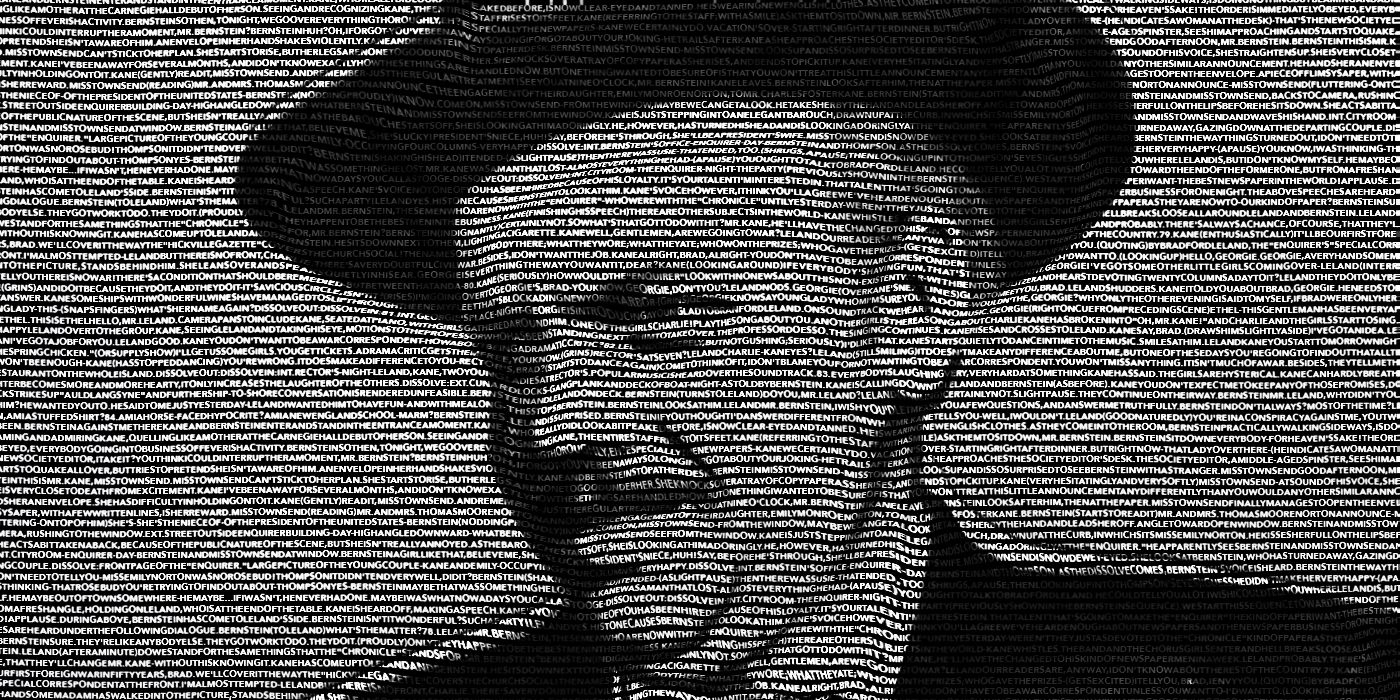 Custom Image by Federico Napoli
Custom Image by Federico Napoli
The Golden Age of Hollywood has been credited for delivering some of the greatest films of all time, such as Casablanca, All About Eve, and It Happened One Night. The era is known for its never-ending cascade of legendary stars, including Bette Davis, Humphrey Bogart, and Marlon Brando, and award-winning filmmakers like Billy Wilder, John Huston, and Orson Welles, but many film fans fail to give the appropriate recognition to a film's screenplay, which is the heart and soul of any memorable classic movie.
Anyone can put together an all-star cast and tie a successful director to the production, but a movie is only as good as its plot, making the screenplay a crucial element of any movie. Classic cinema is full of unforgettable screenplays that continue to be admired and beloved by movie fanatics today, but some, such as On the Waterfront, The Best Years of Our Lives, and Sunset Boulevard, are credited with featuring some of the greatest screenplays from Hollywood's Golden Age of cinema.
10 'Some Like It Hot' (1959)
Directed by Billy Wilder
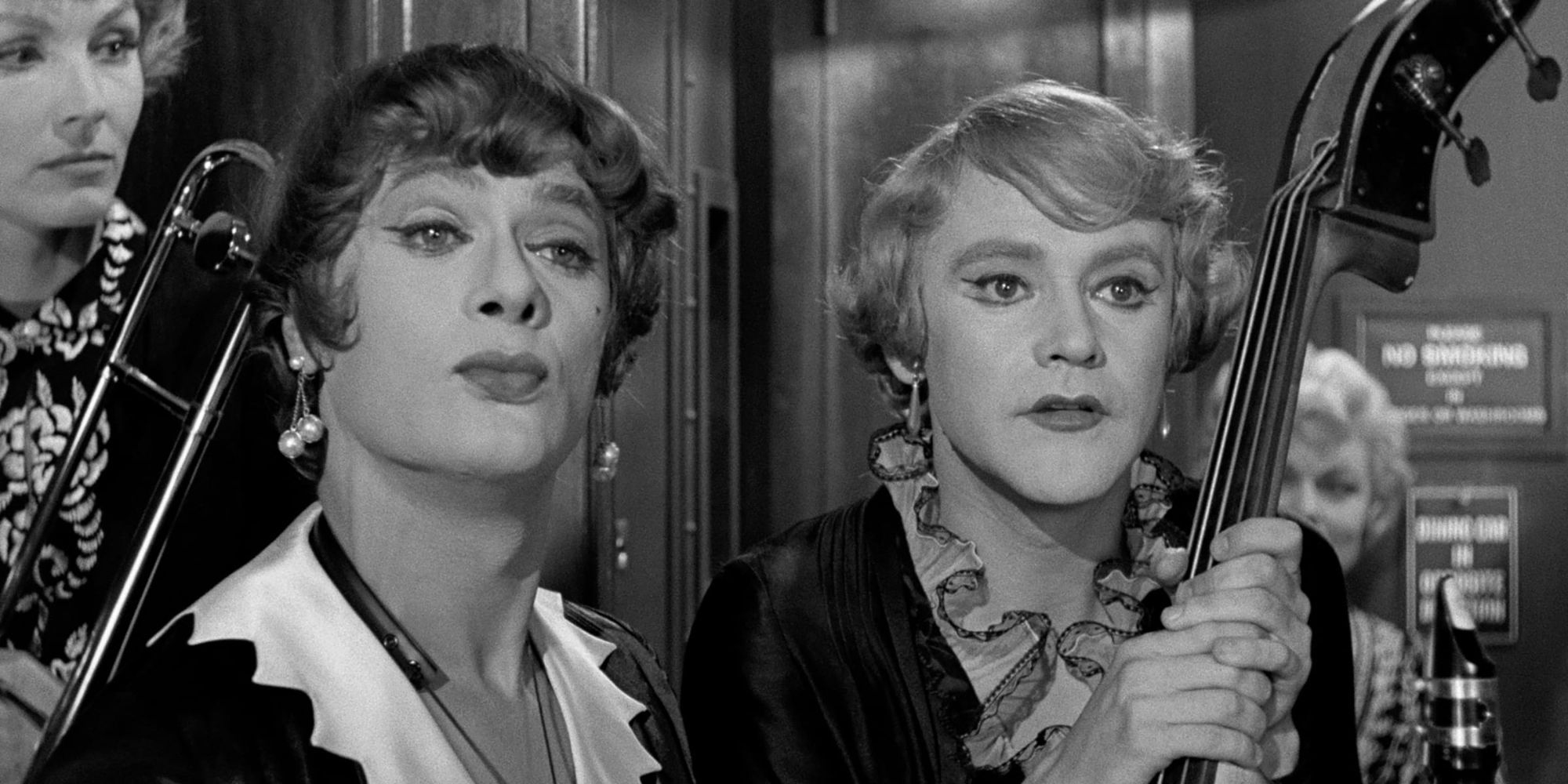 Image via United Artists
Image via United Artists Billy Wilder's Some Like It Hot is the quintessential classic comedy starring Tony Curtis and Jack Lemmon as musicians who, after accidentally witnessing a mob hit, flee Chicago for sunny Florida disguised as women in an all-female band. Initially, their plan goes according to plan, but when Curtis falls for a fellow bandmate (Marilyn Monroe) and a cheeky gentleman (Joe E. Brown) aggressively pursues Lemmon, a series of hilarious schemes unfold for both men.
Some Like It Hot features a snappy and quick-witted screenplay co-written by Wilder, who is easily one of the greatest filmmakers of all time. The screenplay follows a never-ending trail of one-liners and gags, including a knock at George Raft, who is best known for his gangster roles and coining the now-signature action of a mobster flipping a coin which is the source of an infamous scene between Raft and a young hoodlum. Some Like It Hot received several Oscar nominations, including Best Original Screenplay, but only went on to win for Best Costuming.
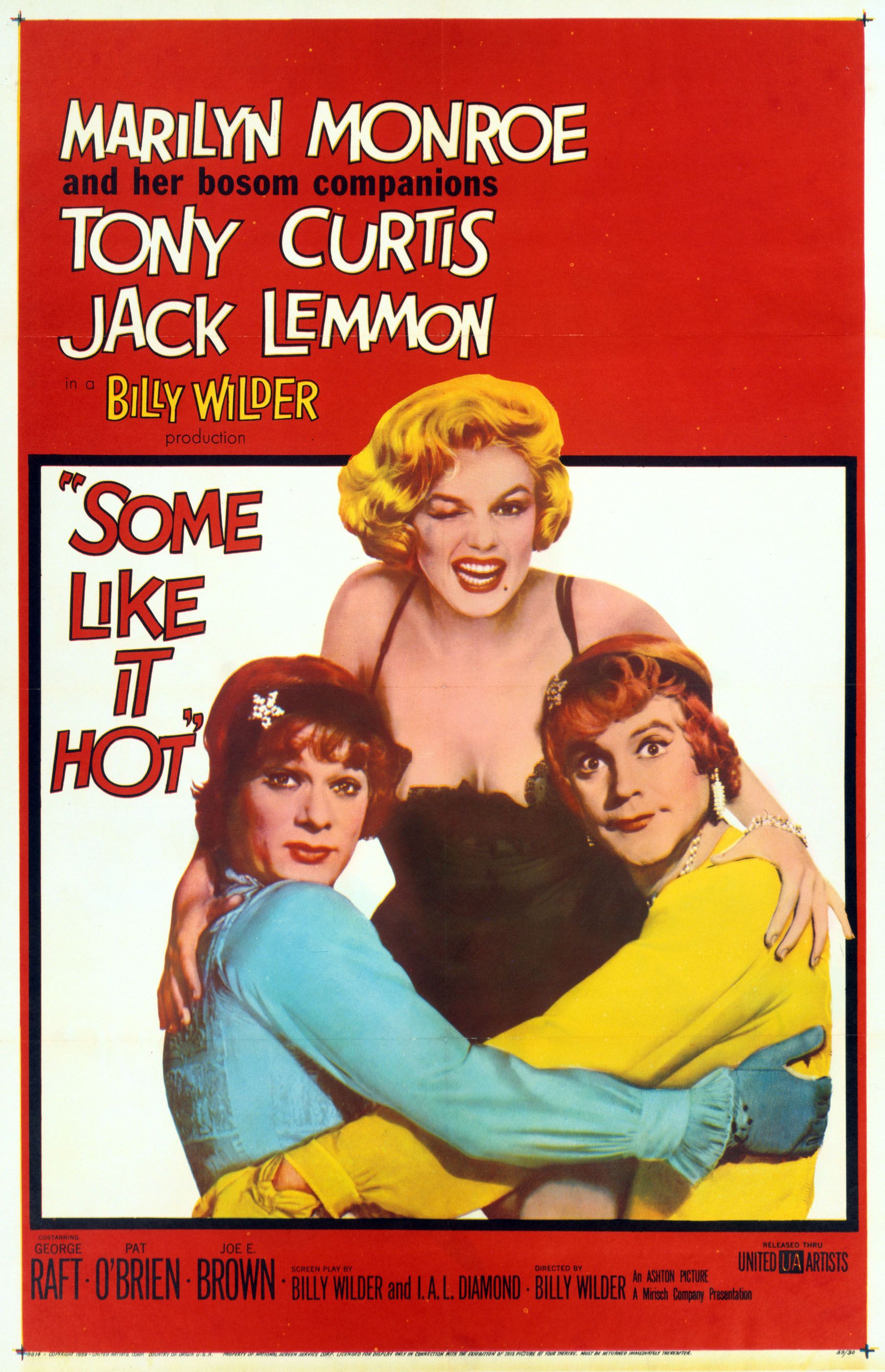
After two male musicians witness a mob hit, they flee the state in an all-female band disguised as women, but further complications set in.
Release Date March 19, 1959
Director Billy Wilder
Runtime 121 minutes
Writers Billy Wilder , I.A.L. Diamond , Robert Thoeren
9 'The Philadelphia Story' (1940)
Directed by George Cukor
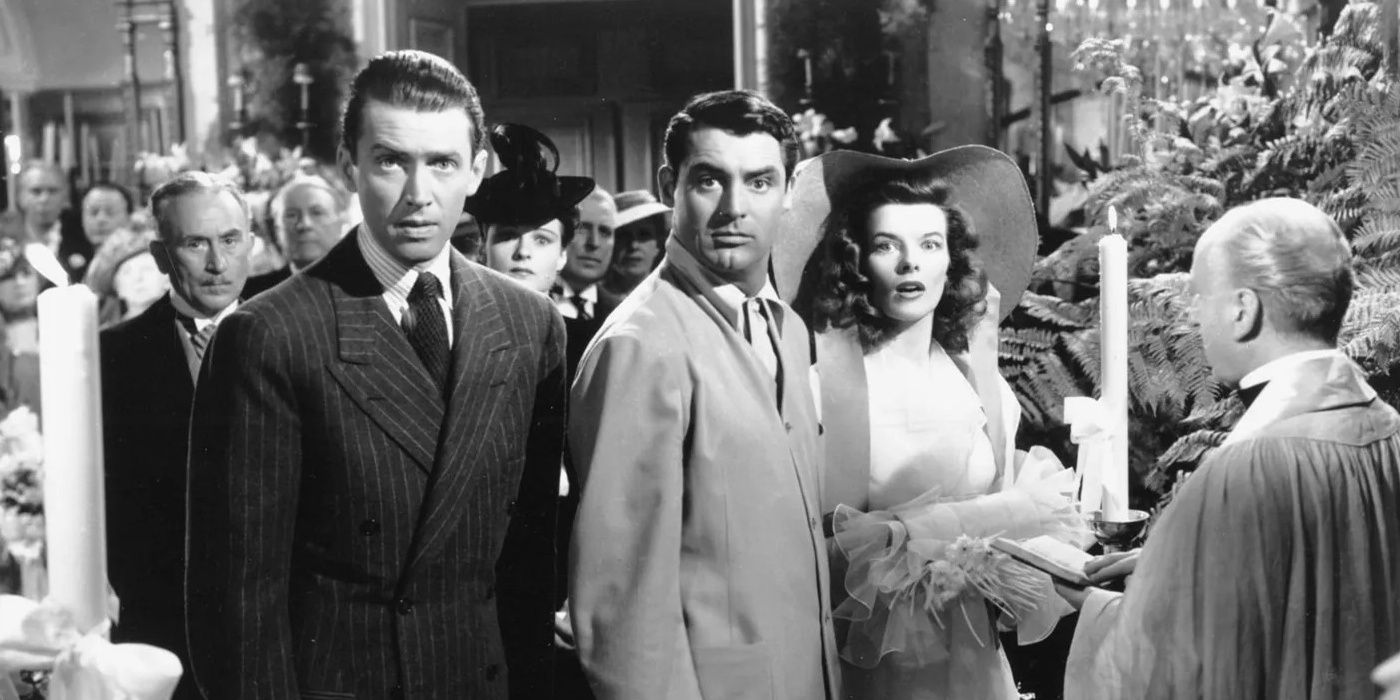 Image via MGM
Image via MGM Katharine Hepburn stars in the romantic comedy, The Philadelphia Story, as a beautiful socialite, Tracy Lord, who is about to marry a wealthy gentleman, George Kittredge (John Howard). Unfortunately, her wedding plans take a sudden turn when her ex-husband, Dexter Haven (Cary Grant), tries to win her back and to add more confusion, Lord crosses paths with a reporter (James Stewart), forcing her to figure out her feelings for all three men before walking down that aisle.
After the major success of The Philadelphia Story on Broadway, Hepburn managed to secure the rights to the show and reprised her role as Lord in the film adaptation. The film is mainly known for breaking Hepburn's reputation as box office poison, but the screenplay for The Philadelphia Story is a perfect blend of romance and humor that makes the overall plot a plausible and convincing love story. The classic rom-com earned six Academy Award nominations and went on to win for Best Adapted Screenplay and Best Actor for Stewart's performance.
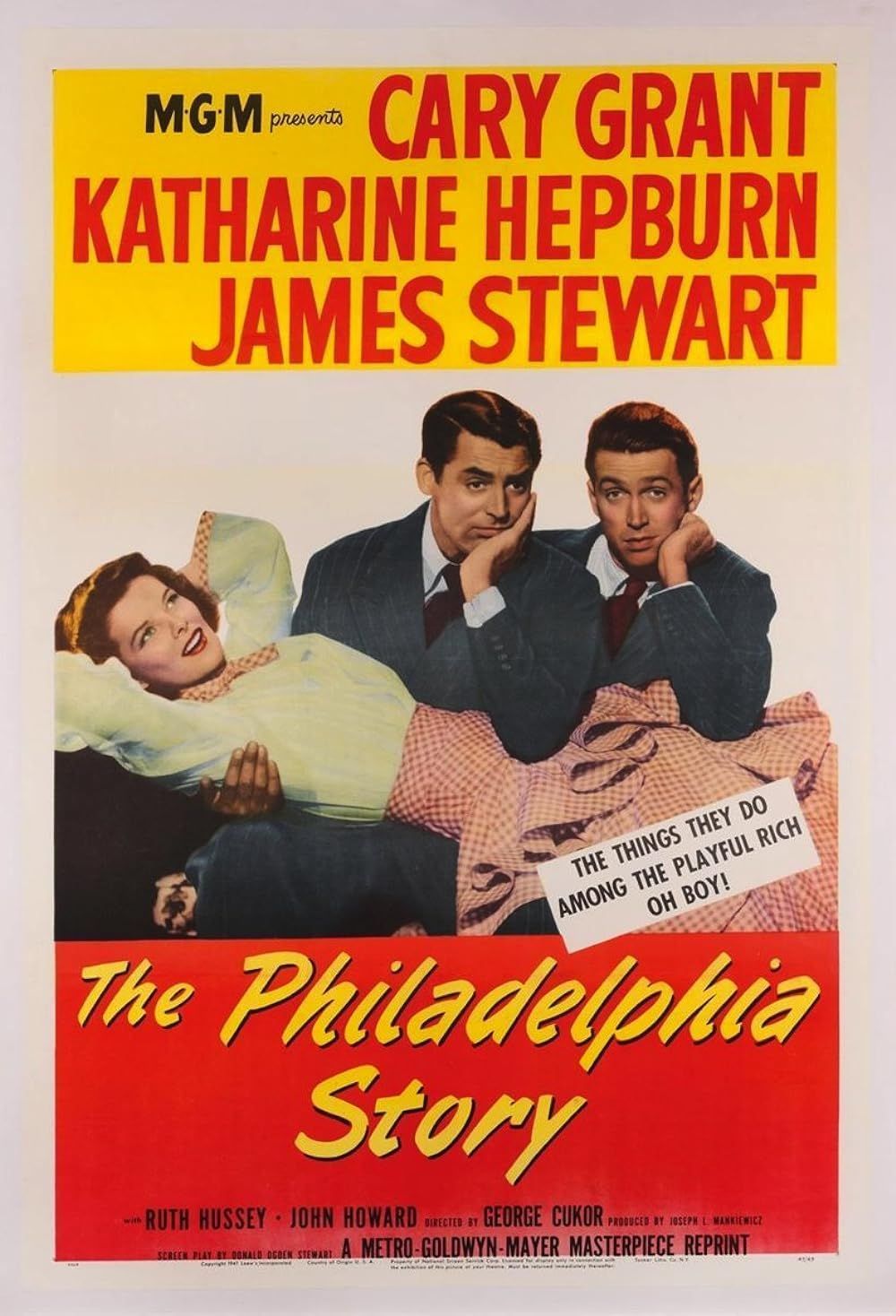
Your changes have been saved
The Philadelphia Story
When a rich woman's ex-husband and a tabloid-type reporter turn up just before her planned remarriage, she begins to learn the truth about herself.
Release Date January 17, 1941
Director George Cukor
Runtime 112 Minutes
Main Genre Comedy
Writers Donald Ogden Stewart , Philip Barry , Waldo Salt
8 'The Best Years of Our Lives' (1946)
Directed by William Wyler
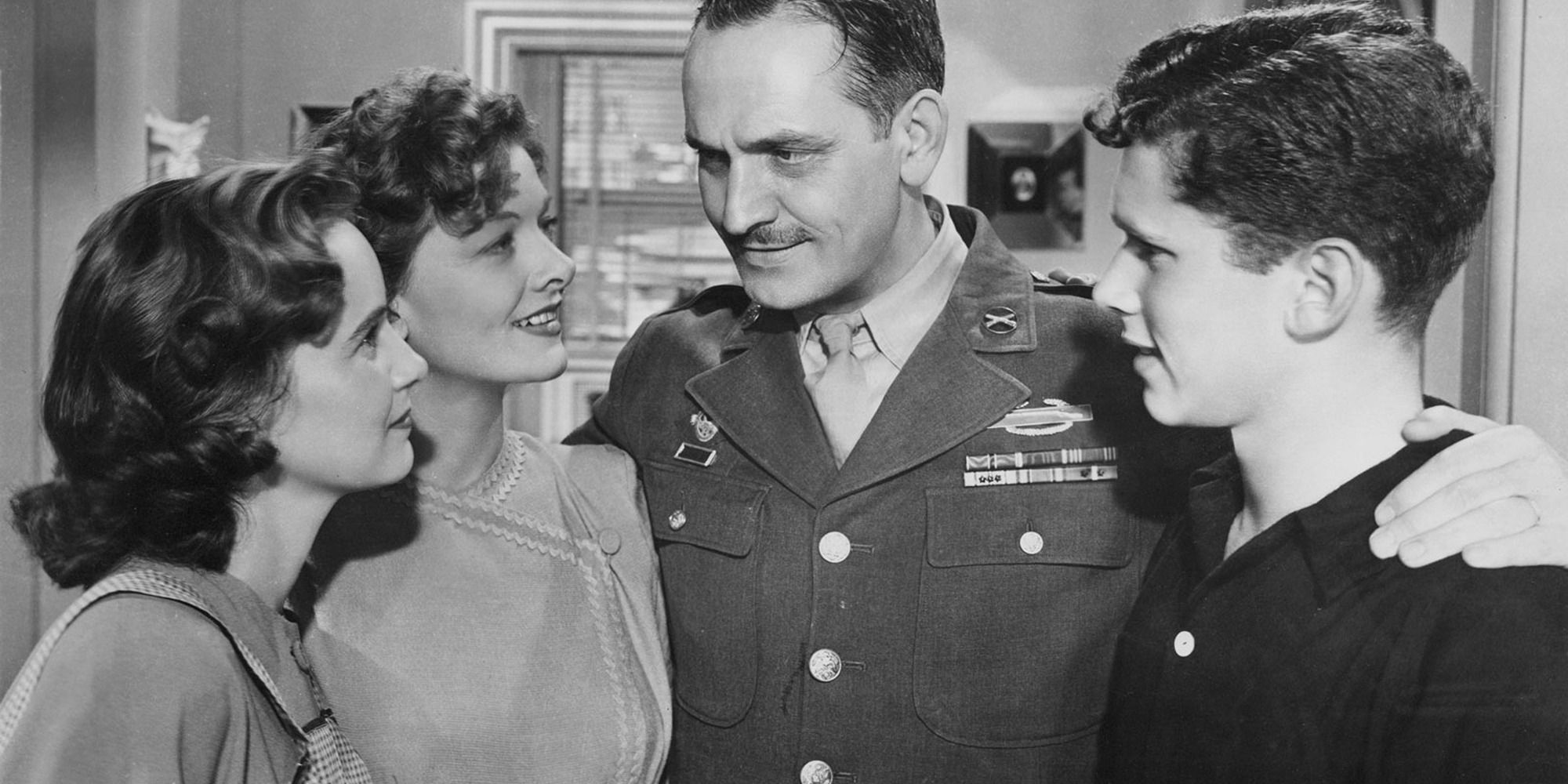 Image via Warner Bros. Discovery
Image via Warner Bros. Discovery The Best Years of Our Lives is a film from the 1940s that is simply perfect from start to finish. The film features an emotional and heartfelt screenplay that explores multiple perspectives of three World War II veterans and the obstacles they're faced with returning to civilian life. Each veteran must overcome a unique scenario, resulting in the film giving a raw, uninhibited portrayal of many veterans' real-life after serving in WWII.
The Best Years of Our Lives is essentially a testament to the artistic direction of director William Wyler, who pulled from his own first-hand experience during the war, giving a detailed portrait of the immense sacrifice made by hundreds of Americans. The movie essentially swept the Oscars that year, earning several nominations and going on to win seven Academy Awards, including Best Screenplay, Best Picture, and Best Director.
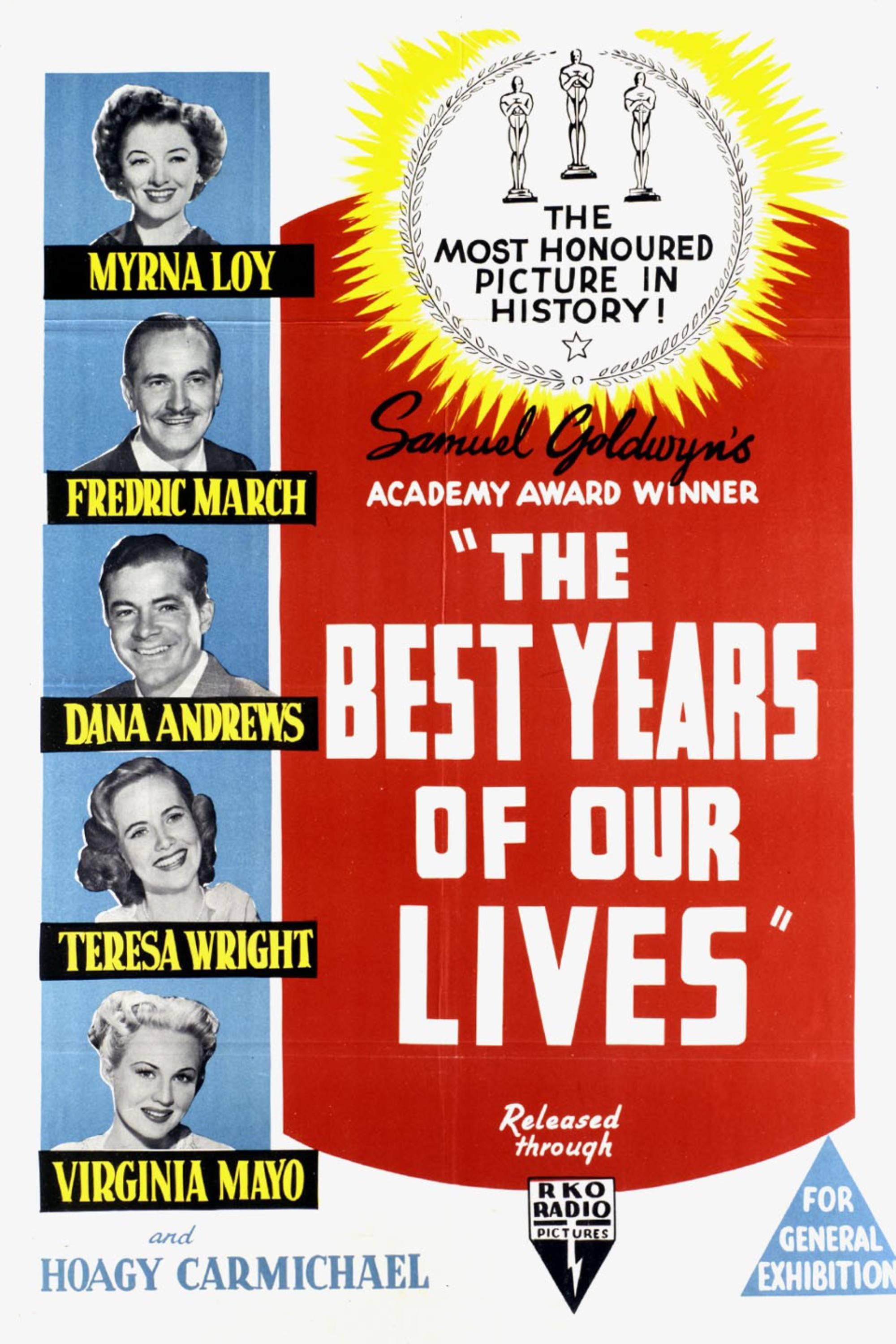
Your changes have been saved
The Best Years of Our Lives
Three World War II veterans, two of them traumatized or disabled, return home to the American Midwest to discover that they and their families have been irreparably changed.
Release Date December 25, 1946
Director William Wyler
Cast Dana Andrews , Fredric March , Harold Russell , Teresa Wright , Myrna Loy , Cathy O'Donnell , Virginia Mayo , Hoagy Carmichael
Runtime 171 Minutes
Main Genre Drama
Writers MacKinlay Kantor , Robert E. Sherwood
7 'On the Waterfront' (1954)
Directed by Elia Kazan
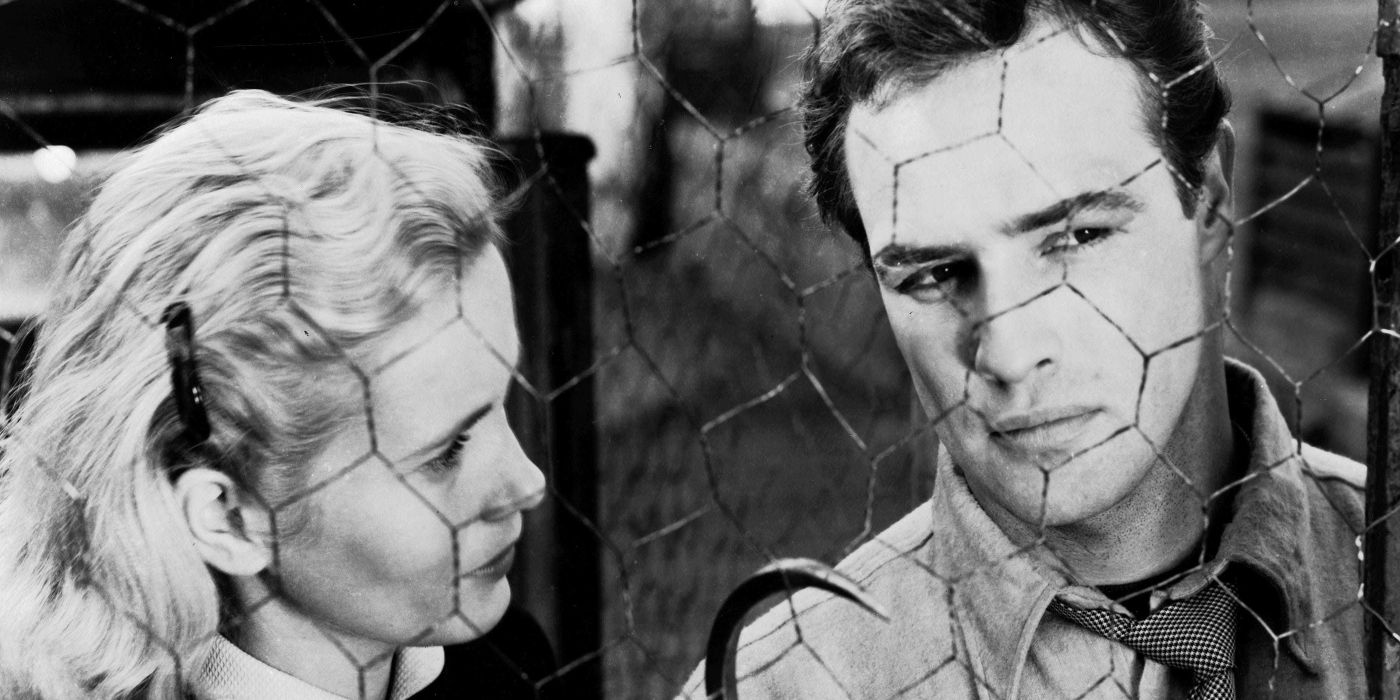 Image via Columbia Pictures
Image via Columbia Pictures Marlon Brando delivers his Oscar-winning performance in On the Waterfront as a former up-and-coming boxer turned dockworker, Terry Malloy. When a man is murdered before he can testify in court against a local gangster, Johnny Friendly (Lee J. Cobb), Malloy decides to team up with the man's sister, Edie (Eva Marie Saint) and a streetwise priest (Karl Malden) to testify against Friendly, putting Malloy and those around him in extreme danger.
Budd Schulberg's screenplay for On the Waterfront is simply magnificent and a compelling tale of defiance, redemption, and sacrifice that is both moving and incredibly powerful. While the film features magnificent performances, many film fans remember On the Waterfront for Brando's iconic monologue ("I could have been a contender,") which has been cemented in cinema history as one of the greatest scenes in classic film history. On the Waterfront received twelve Oscar nominations and ended up winning eight of its nominations, including Best Screenplay, Best Supporting Actress, and Best Picture.
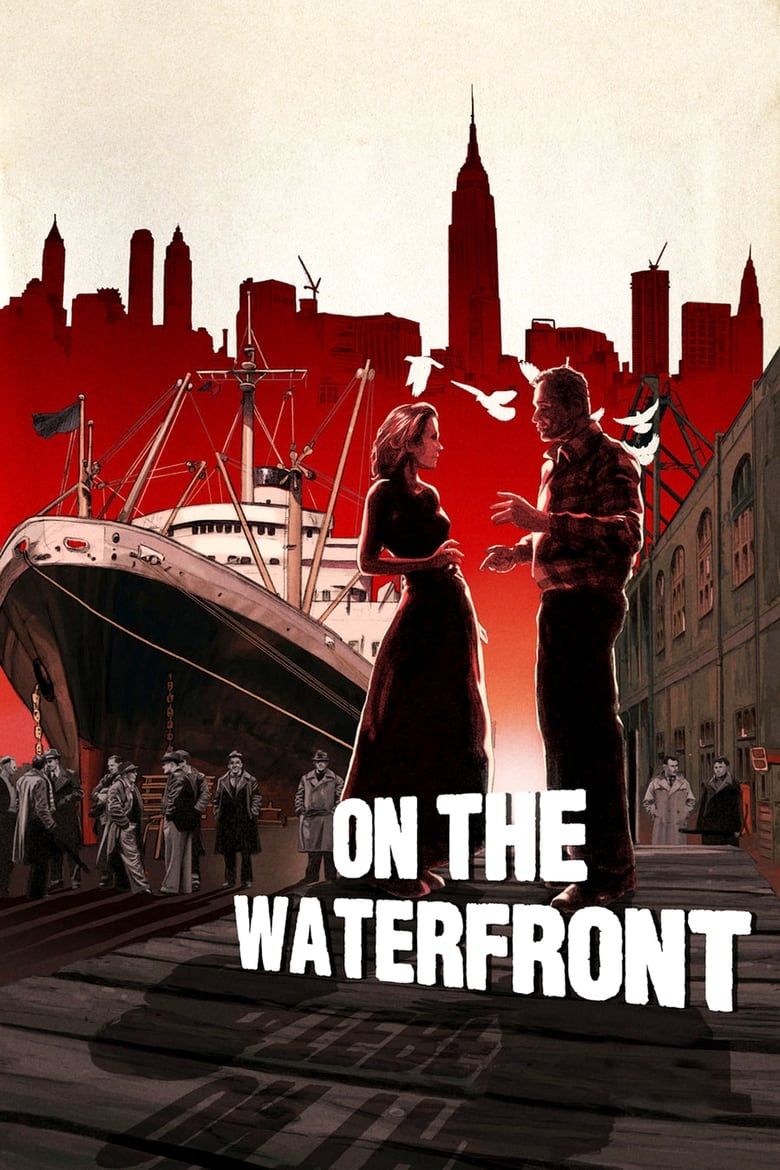
Your changes have been saved
On The Waterfront
An ex-prize fighter turned New Jersey longshoreman struggles to stand up to his corrupt union bosses, including his older brother, as he starts to connect with the grieving sister of one of the syndicate's victims.
Release Date June 22, 1954
Director Elia Kazan
Runtime 108 Minutes
Main Genre Crime
Writers Budd Schulberg
6 'The Treasure of Sierra Madre' (1948)
Directed by John Huston
Set during the 1920s, two down-on-their-luck Americans, Dobbs (Humphrey Bogart) and Curtin (Tim Holt), travel to Mexico where they hope to strike it rich in the Sierra Madre mountains that are rumored to be full of gold. The two men meet up with an old prospector (Walter Brennan) and even though they manage to find a buried fortune, they face other obstacles like bandits lurking in the distance and their own sense of greed and insecurities, which all threaten to destroy everything and everyone.
Adapted from B. Traven's 1927 novel, The Treasure of Sierra Madre is a Neo-Western classic written and directed by John Huston. Huston's screenplay is an edgy adventure with hints of thrills that, both visually and psychologically, toys with the audiences' minds, fully immersing them into an intense and unpredictable plot. The Treasure of Sierra Madre reigns as one of the best classic films and received four Academy Award nominations and won three, including Best Screenplay, Best Director, and Best Supporting Actor for Brennan's performance.
5 'Casablanca' (1942)
Directed by Michael Curtiz
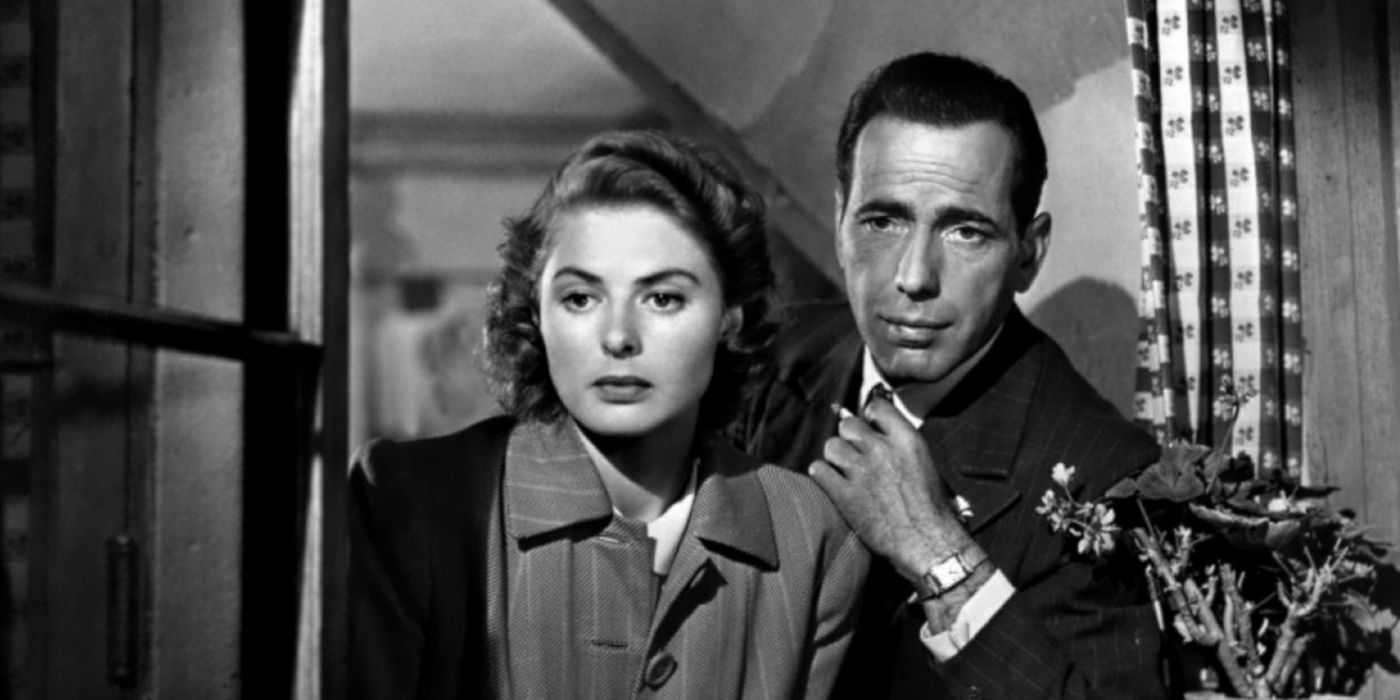 Image via Warner Bros.
Image via Warner Bros. Casablanca is perhaps one of the most well-known classic films, mainly for its rich dialogue and iconic one-liners ("Here's looking at you, kid.") Bogart stars as an American, Rick Blaine, who owns a popular nightclub in Casablanca, but when his former flame, Ilsa (Ingrid Bergman) strolls in to Rick's place with her husband and resistance leader, Victor (Paul Hendreid), Blaine is reminded of their past romance that abruptly ended on poor terms. As Victor's arrival becomes known, he and his wife are put in serious danger, leading Blaine to choose between helping them escape or staying out of the matter.
Casablanca is an adaptation of the 1940 novel, Everybody Comes to Rick's by Murray Bennett and Joan Alison and is also credited as a staple in classic cinema. The film's screenplay is noted for its heartfelt dialogue and a star-crossed love story tailored to a riveting war side story, which are both tied neatly together. Initially, no one involved in the film ever expected Casablanca to become a massive hit, let alone earn several Oscar nominations. Out of the film's eight Academy Award nominations, it ended up winning three, including Best Screenplay, Best Director, and Best Picture.
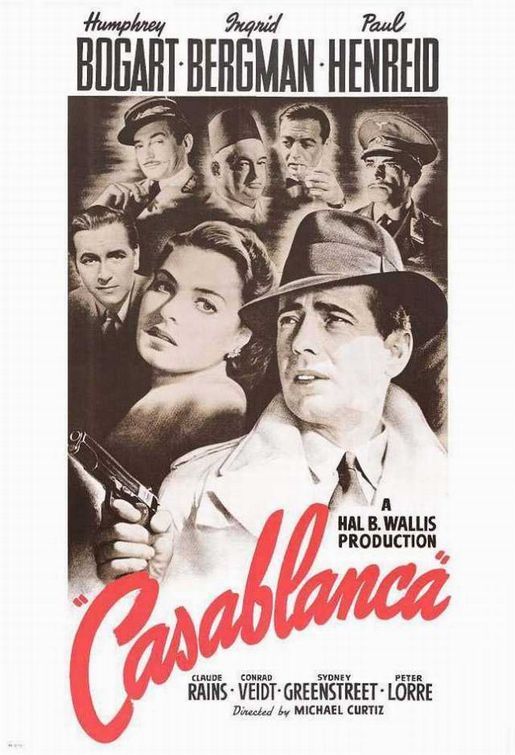
Your changes have been saved
Casablanca
A cynical expatriate American cafe owner struggles to decide whether or not to help his former lover and her fugitive husband escape the Nazis in French Morocco.
Release Date January 23, 1943
Director Michael Curtiz
Runtime 102 minutes
Main Genre Drama
Writers Julius J. Epstein , Philip G. Epstein , Howard Koch , Murray Burnett , Joan Alison , Casey Robinson
4 'It Happened One Night' (1934)
Directed by Frank Capra
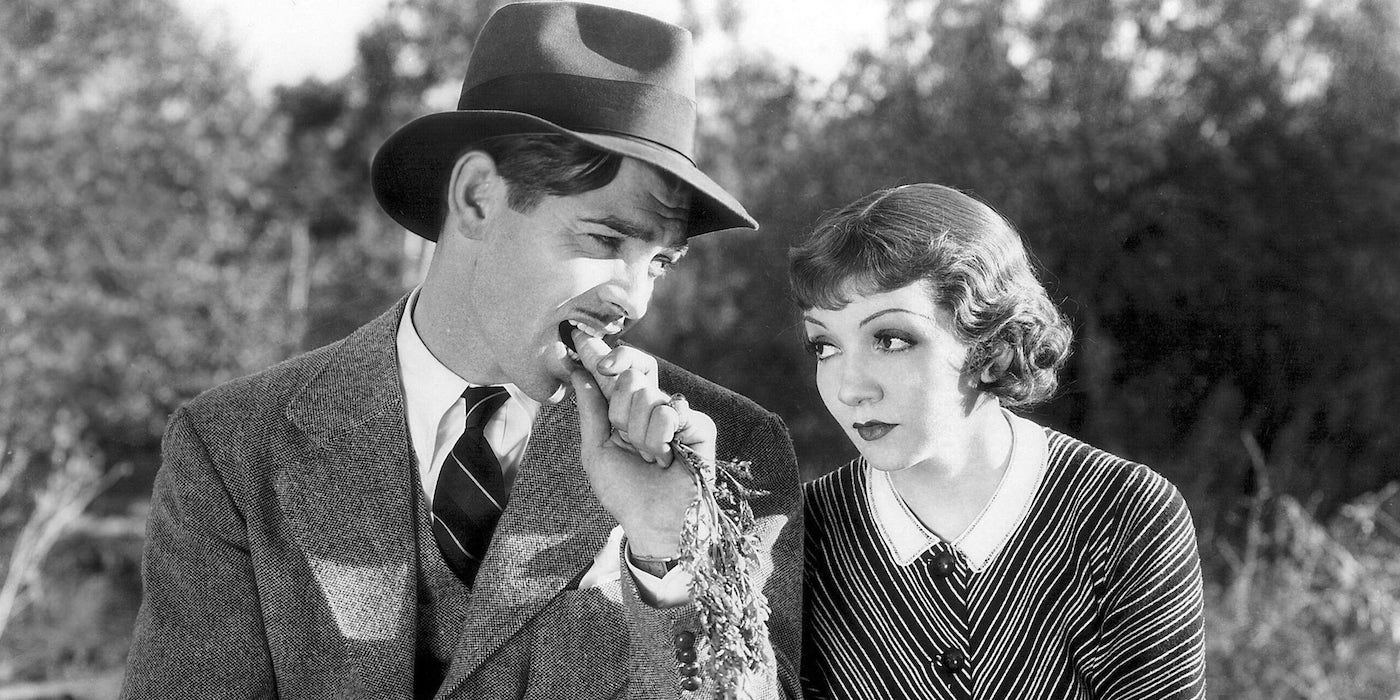 Image via Columbia Pictures
Image via Columbia Pictures It Happened One Night is another film that took the industry by storm, becoming the first film to win in all the Oscar's major categories and is also cited as one of the greatest films ever made. The film stars Claudette Colbert as a young socialite who, after marrying against her father's wishes, is shipped off until things calm down. Unbeknownst to her father, she manages to escape and tries to make her way back to her husband. On the way, she crosses paths with a reporter (Clark Gable) who recognizes her and agrees to help her get back home in exchange for an exclusive story.
It Happened One Night is a timeless pre-Code romantic comedy based on the short story Night Bus by Samuel Hopkins Adams. The screenplay was penned by Robert Riskin, who was a frequent collaborator with the film's director, Frank Capra, and delivers a profoundly smart and lively love story that, despite its slightly outlandish plot, unfolds beautifully on the silver screen. It Happened One Night ultimately defied the odds and while it features excellent performances by the overall cast and Capra's masterful direction, the film's screenplay is the heart of it all.
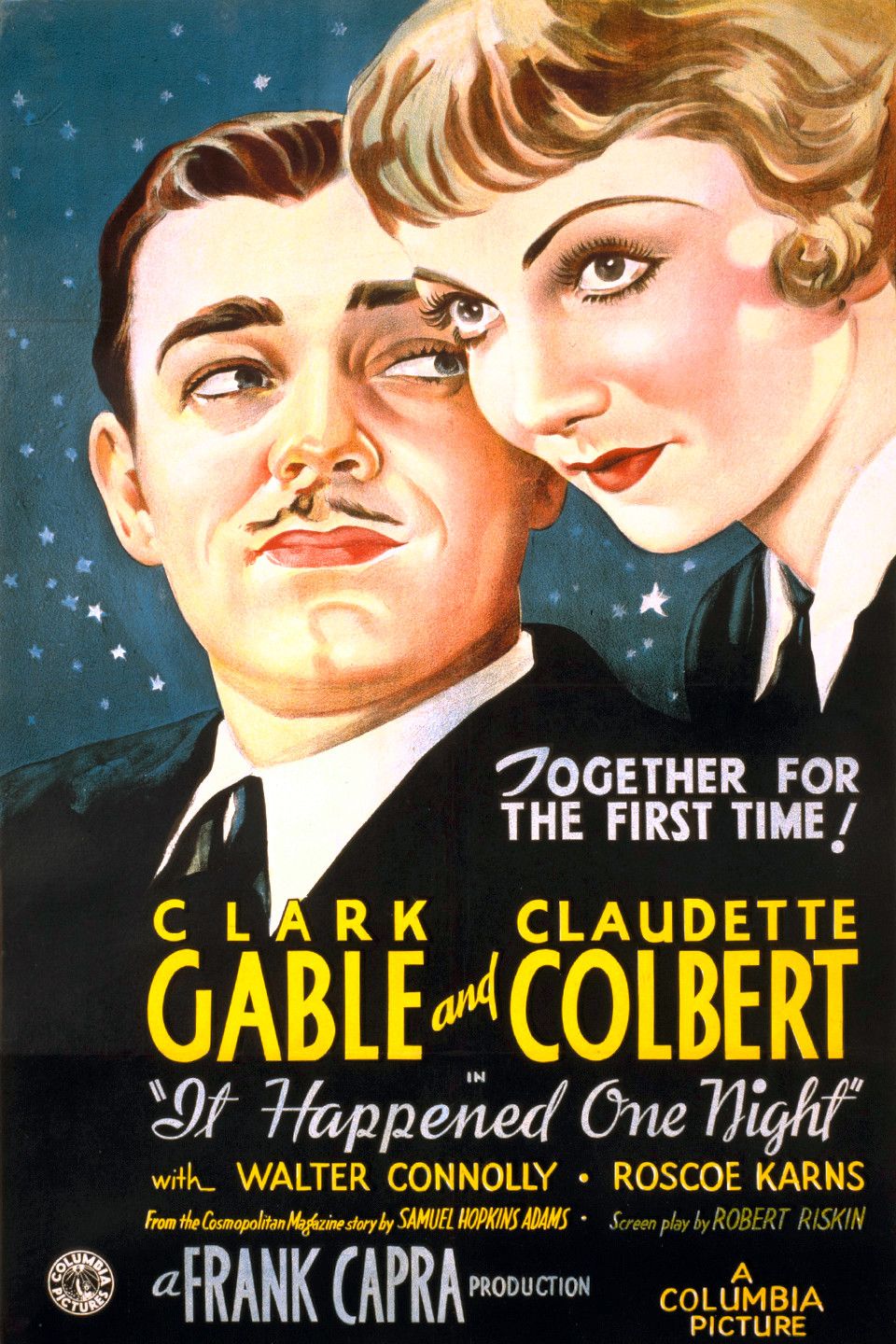
Your changes have been saved
It Happened One Night
A renegade reporter trailing a young runaway heiress for a big story joins her on a bus heading from Florida to New York, and they end up stuck with each other when the bus leaves them behind at one of the stops.
Release Date February 22, 1934
Director Frank Capra
Cast Clark Gable , Claudette Colbert , Walter Connolly , Roscoe Karns
Runtime 105 minutes
Main Genre Comedy
Writers Robert Riskin , Samuel Hopkins Adams
Rating Approved
3 'Citizen Kane' (1942)
Directed by Orson Welles
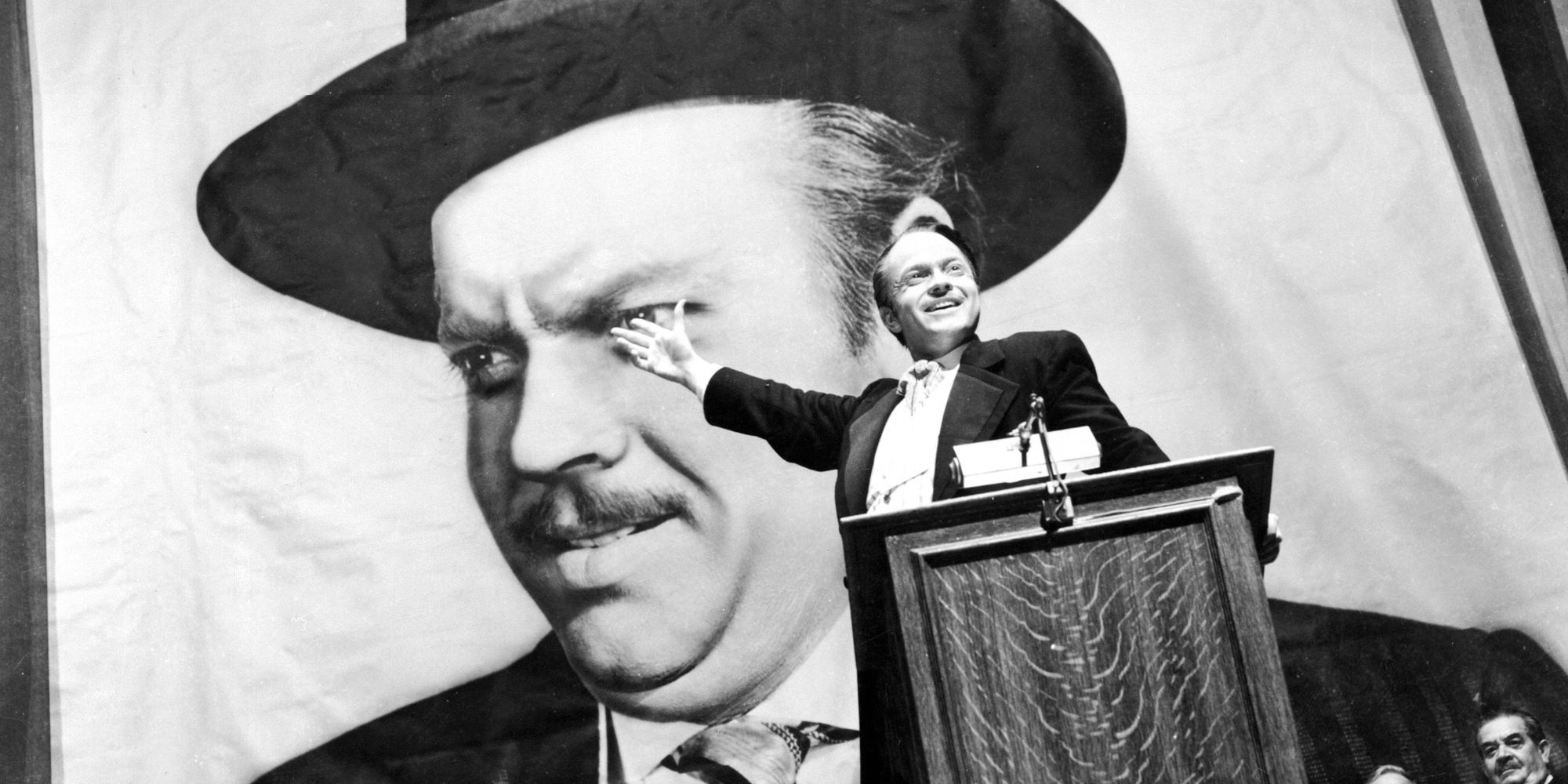 Image via RKO Pictures
Image via RKO Pictures Orson Welles made his theatrical debut with Citizen Kane, which many critics and historians recognize as one of the greatest films of all time. Welles directs and stars in his magnum opus as a media tycoon, Charles Foster Kane, who, while on his deathbed, utters the final word, "Rosebud," leading a young reporter on a mission to find out the meaning behind it. As he interviews Kane's friends and associates, a portrait of the successful and complex man begins to emerge, detailed with loneliness and loss that forever changed the course of his life.
Citizen Kane is one classic film everyone should see at least once in their lifetime and reigns as Welles' signature film. Citizen Kane features a well-structured screenplay that is full of heartfelt sentiment and fierce rawness that has yet to be matched by any film to date. The film is clouded in some controversy, notably the screenplay being obviously based on the life of William Randolph Hearst, but also regarding Welles' genuine involvement in writing the script. Welles is credited for co-writing the screenplay with Herman J. Mankiewicz, who both won the Oscar for Best Screenplay, but in recent years, there's been some speculation about Welles' overall contribution to the final script.
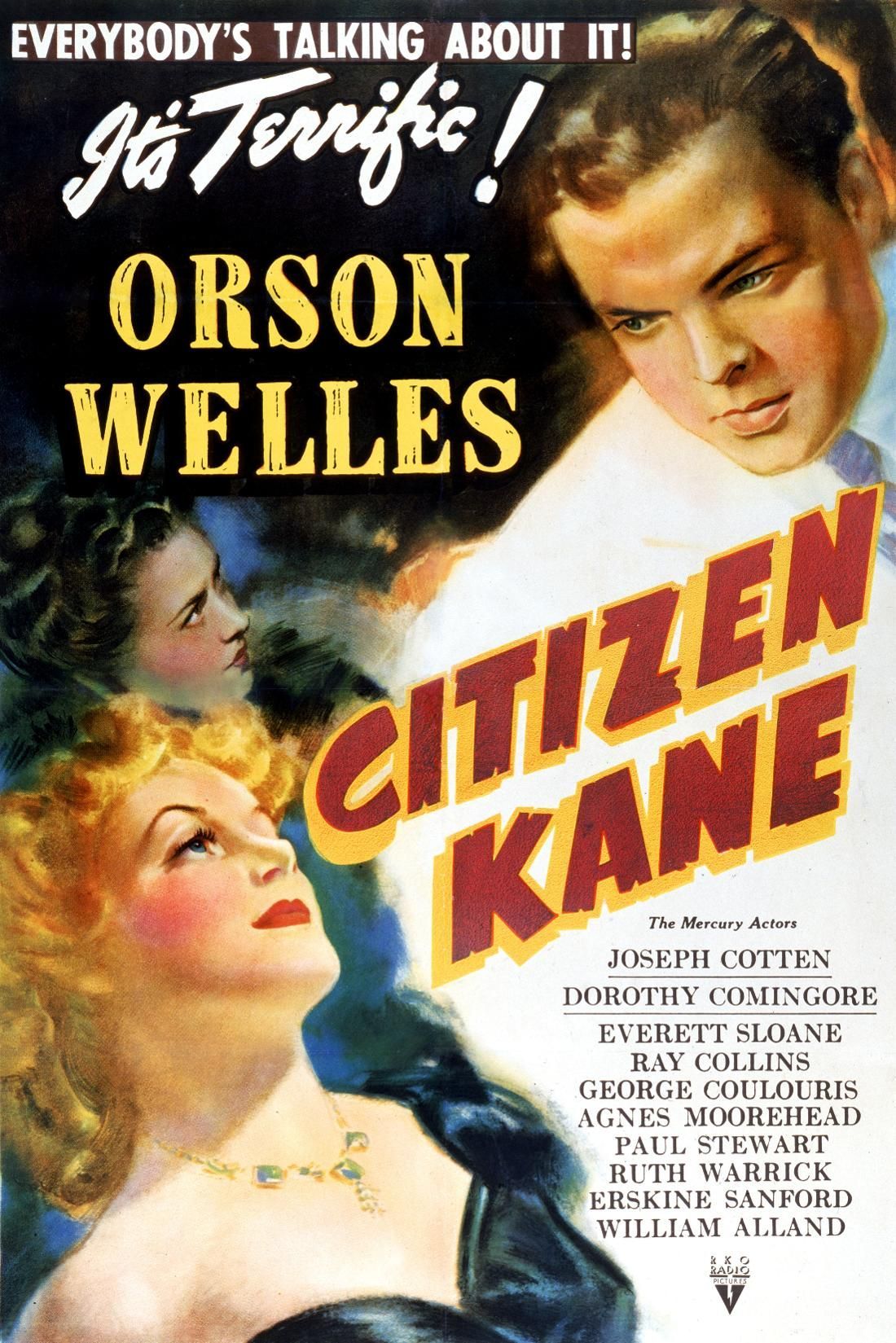
Directed by and starring Orson Welles in his feature film debut, Citizen Kane tells the life story of Charles Foster Kane, a self-made business tycoon partially based on William Randolph Hearst. The film tells the story of Kane's rise and fall from power, narratively framed by the sensation caused by death at the beginning and end of the film. Besides Welles, Joseph Cotten, Dorothy Comingore, Ray Collins, Agnes Moorehead, and Ruth Warrick also star.
Release Date April 17, 1941
Runtime 119 minutes
2 'Sunset Boulevard' (1950)
Directed by Billy Wilder
.jpg) Image via Paramount Pictures
Image via Paramount Pictures William Holden stars in the classic film noir Sunset Boulevard as an aspiring writer, Joe Gillis, who, after meeting a former silent film star, Norma Desmond (Gloria Swanson), agrees to help write her a script that would be her comeback to the big screen. As Gillis begins spending more time with Desmond and is showered with affection and gifts, he begins to notice that Desmond's attraction to him has grown into an obsession, leading him to find a way out of her grasp before it's too late.
The screenplay for Sunset Boulevard is the epitome of excellence and features an array of vivid and clever dialogue which is paired with an alluring off-camera narration and dramatized action, cementing it as one of the best screenplays of Hollywood's Golden Age. Many remember the film's final and now-iconic line ("I'm ready for my close-up, Mr. DeMille.") that leaves audiences with a beautiful but haunting shot of Swanson's character who has slipped completely into madness. Sunset Boulevard earned several Academy Award nominations and ended up winning for Best Story and Screenplay, Best Art Direction, and Best Musical Score.
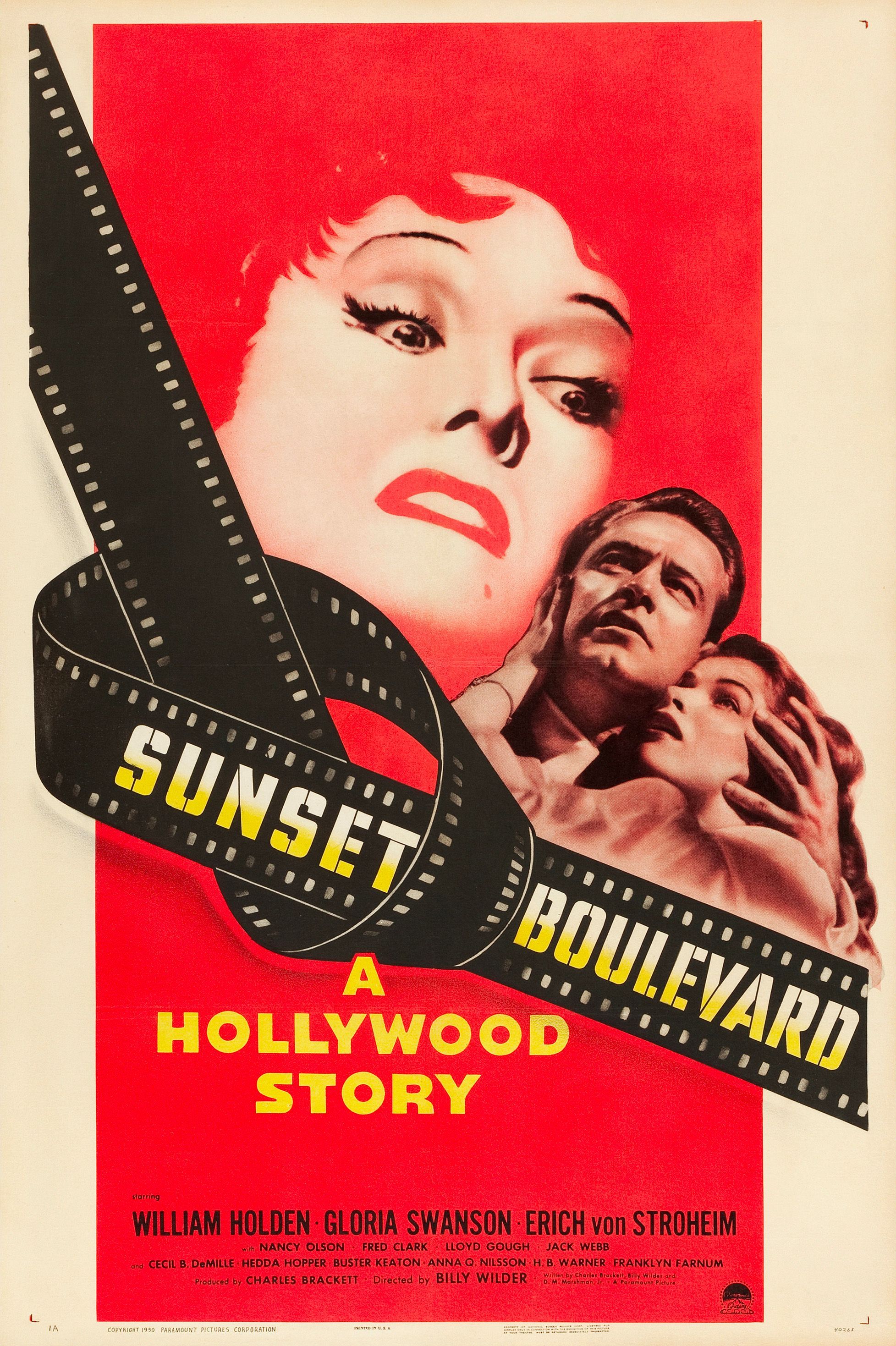
Release Date August 10, 1950
Director Billy Wilder
Cast William Holden , Erich von Stroheim
Runtime 110 minutes
Main Genre Film Noir
Writers Charles Brackett , Billy Wilder
1 'All About Eve' (1950)
Directed by Joseph L. Mankiewicz
 Image via 20th Century Studios
Image via 20th Century Studios Joseph L. Mankiewicz writes and directs the classic American drama, All About Eve, which stars Bette Davis as a prominent but aging stage star, Margo Channing, who ends up taking a young fan and aspiring actress, Eve Harrington (Anne Baxter) under her wing. As Harrington begins to infiltrate Channing's social and professional circles, Channing starts to realize that her seemingly innocent protégé is a master manipulator with an ulterior motive.
All About Eve reigns as a top-tier classic film, featuring an array of magnificent performances by a more than capable cast which also includes George Sanders, Gary Merrill, and Thelma Ritter. The screenplay is an accurate reflection of the film's theater setting and style, conveying a combination of highly animated drama and relentless sass that comes to a climatic head with Sander's final speech, which is a powerful sight to behold. All About Eve received twelve Academy Award nominations, ultimately winning six, including Best Screenplay, Best Director, and Best Picture.
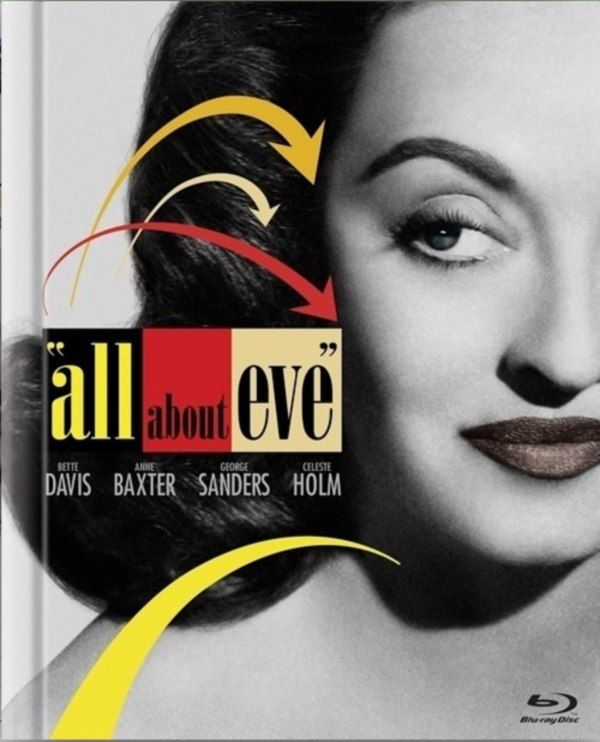
Your changes have been saved
All About Eve
A seemingly timid but secretly ruthless ingénue insinuates herself into the lives of an aging Broadway star and her circle of theater friends.
Release Date October 6, 1950
Director Joseph L. Mankiewicz
Cast Bette Davis , Anne Baxter , George Sanders , Celeste Holm , Gary Merrill , Hugh Marlowe
Runtime 138 minutes
Main Genre Drama
Writers Joseph L. Mankiewicz , Erich Kästner , Mary Orr

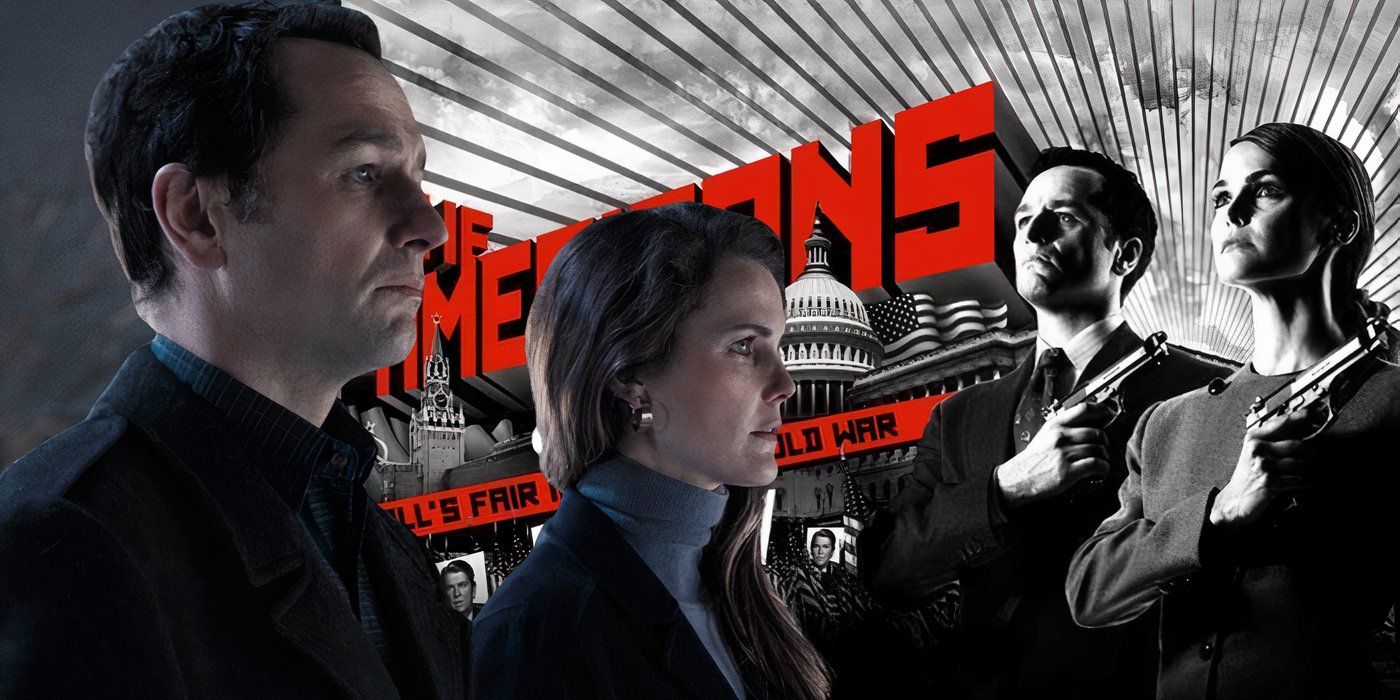

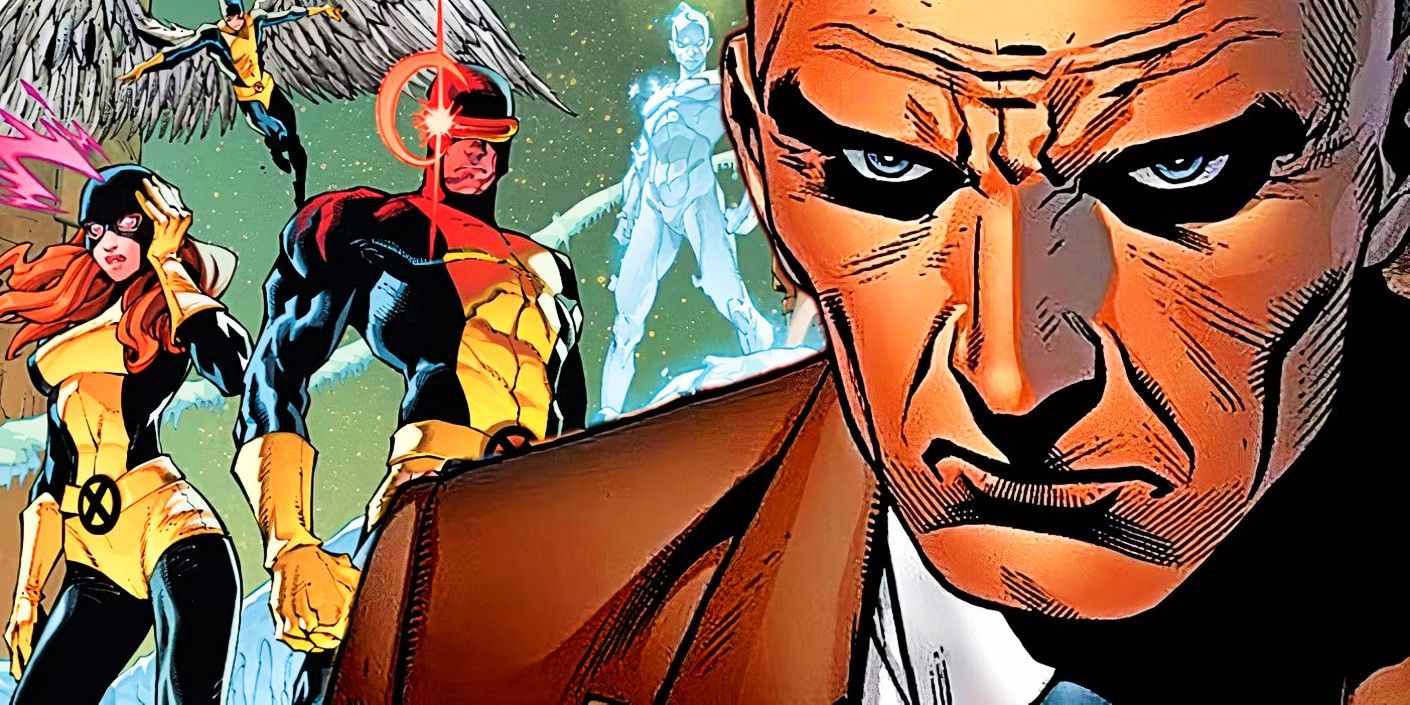





 English (US) ·
English (US) ·